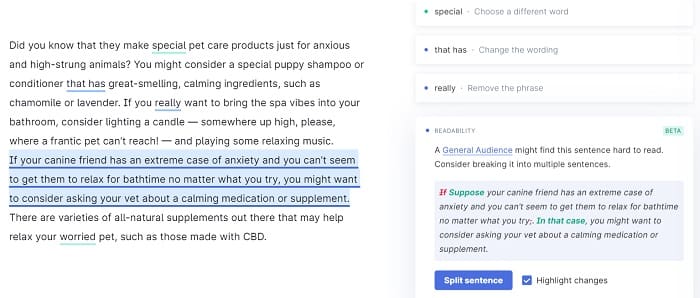If you have free time and enjoy writing - why not use that free time to earn extra cash as a freelance blogger? But how do you pursue freelance blogging as an income avenue?
First off, Who is a Freelance Blogger?
You write blog posts, but you sell your service to different organizations, entrepreneurs, and individuals instead of working only on your own blog or for a single client. As you start getting work and gaining clients, you can choose who you want to work for. You may prioritize 2-3 clients over others, but you're not tethered to anyone. A big advantage of freelancing is the freedom and flexibility to choose who you wish to write for.
Depending on your financial situation and personal goals, you can make freelance blogging a part-time job or a full-time business venture.
What Does Freelance Blogging Involve?
On a regular day as a freelance blogger, you can expect to spend time researching, structuring/outlining, and producing content based on clients' requirements. After sending your work across, it's reviewed, approved, and payment made. Clients may request revisions and release payment after they're satisfied with your efforts.
Agreements
You must put down any agreement on revisions, deadlines, and payments in writing. Organizations and individuals in need of blog posts for marketing are open to writer-friendly contracts. Common elements of a contract are:
Work for hire statement: You accept that the work is the client's property, and no royalties will be paid.
Payment: The client must pay the fee at the receipt and satisfaction of the work.
Process: Expectations and scope of the work, approval processes, and deadlines
Revisions: How many revisions can the client request? A possibility is doing the first round of revisions for free and then charging a fee for subsequent rounds.
In the freelance writing world, payment is generally per word. Depending on the type of project, freelancers can sometimes charge per page, as is usually the case for whitepapers, ebooks, and case studies. Established freelance writers sometimes charge a flat rate based on the complexity of work and its value to the client.
If your sole focus is on writing blog posts, you can charge per word or per post. It often makes sense to start on the lower side and then increase your fee as you begin attracting more clients.
What's the Going Rate?
The going rate per word varies from $0.03 to $0.30.
The less editing and the less time the client needs to spend getting the blog post ready to publish, the more they are willing to pay per you per word. In general, as a brand new freelance blogger, expect to command $0.o5 - $0.08 per word.
One of the best ways to improve your writing and therefore get paid more per word, is to use the Grammarly app. It will give you an advantage over the majority of freelance writers.
The screenshot below shows how the app highlights and correct all the errors in the text, including poor sentence structure.

Where do You Begin?
Blogging is knowledge sharing. You're informing, educating, and entertaining your clients' audience. With consumers already bombarded by content online, the need for quality blog posts has exploded.
In the past, businesses were happy with generic posts optimized for search engines. Now they're demanding insightful content that solves their audience's problems.
To improve your chances of meeting your financial goals from blogging, you should:
Choose Your Niche or Niches
What do you have a natural ability to write about? Do you have knowledge of and experience in a particular field? By focusing on a unique target market, you will serve a specific audience better than bloggers with a broad focus.
Say a software-as-a-service (SaaS) start-up is looking for a freelance blogger. They will prefer someone who writes mainly about SaaS products over a blogger who writes about multiple technology subjects.
If you're interested in writing about technology topics and marketing yourself as a tech blogger, specify what you're most knowledgeable about. Potential clients can therefore determine whether you're a good fit for their needs.
Know the Market Demand
If you love writing about beauty products, you can be confident that a vast market exists for freelance beauty bloggers. Other popular blogging niches include travel, technology, gaming, fashion, personal finance, and health and fitness.
But what if your passion is acting or painting, or something else that is not one of the big, 'mass' niches? Before you decide on a niche for freelance blogging, check whether there's a market for it. Research some popular websites where clients post freelance blogging jobs, such as Upwork and Freelancer.
Income Potential
Once you've chosen an in-demand niche and one that you know you'll enjoy writing about, the next step is to estimate the amount you can earn based on the average per word/per article rate you identified during your initial research. And, based on how many posts you think you can realistically write per week or per month.
Typically, freelance bloggers' earnings go up as they get faster and more proficient at writing posts!
Time Management
Factor in the hours you can spend blogging each week. Make sure you initially take on a realistic amount of work and test how it goes before making adjustments.
Reading and writing for several hours a day can result in cognitive overload. As blogging is a desk job, your physical health will also need attention. Determine how many hours a blog post should take. One that doesn't require much research may need 1-2 hours, while a long-form, in-depth post that requires you to deal with a topic in a lot of detail can take an entire day of work.
Planning is key to maintaining a work-life balance and managing your time as efficiently as possible.
Creating a Website
Your website is your online brand identity. It is also a key marketing channel that should contain these must-have elements:
- Your blogging portfolio showcasing your best work
- An 'About Me' page communicating your background and why you're the best freelance blogger for the job
- Social media buttons
- A landing page with client testimonials and limited-period discounts
- A pricing page stating your fees
- A contact form
To help with SEO and increase traffic to your website, add keywords and key phrases in your content that potential clients might use to search for freelance bloggers in your niche.
Zero in on a Platform
WordPress offers a ton of functionality and allows you to publish portfolios, create your own blog for added credibility, accept payments for work, and much more.
Choose a Domain Name
The words in your domain name instantly give search engine users an idea of what your site is all about. Your domain name should be related to your blogging service. Try to make it as unique and memorable as possible.
Pick a Theme
Make a list of the features you want your website to have, and choose a WordPress theme accordingly. Less is more. An elegant website that makes good use of white space is preferable to one with lots of images and elements.
Write Compelling Copy
Your website's content should give potential clients confidence about your writing ability. Write with prospective clients' needs in mind. Pay attention to grammar, punctuation, vocabulary, spelling, clarity, and brevity. Use strong calls to action.
Recommended: Use the Grammarly app
Create a Profile on Freelance Marketplaces
You're probably already aware of the top online marketplaces for freelancers. UpWork and Fiverr are well-known, while myHQ Digest, The Writer Finder, and Textbroker are not as well know but still popular as platforms connecting businesses with freelance writers.
If you have a website, do you need to be on a freelance platform as well?
When you start your freelance blogging journey, these platforms can help you get some initial work. They're great for gaining experience and positive reviews. In addition, you get the opportunity to engage with potential clients and scan the freelance scene online. As your business gathers pace, you can use jobs on freelance platforms to fill gaps in your schedule.
On the other hand, freelance platforms charge a pretty hefty commission. Payment can take a while, up to two weeks, for some platforms.
Still, it's worth looking at some of these sites and trying one or two. At any time, you can choose to discontinue your service and focus on serving clients exclusively from your website.
Start Guest Posting
Guest blogging is often a part of a businesses' content marketing strategy, helping bring in targeted website traffic and generating quality leads. It involves getting your posts published on an authoritative website with thousands of subscribers.
Here's how you can start guest posting:
- Identify websites to contribute to
- Cultivate a relationship with the site owner
- Pitch ideas for guest posts
- Submit your post
- Maintain an ongoing relationship
Websites that accept guest posts may or may not pay the content creator. But it's not really about getting paid. The much more significant benefit is for the blogger or start-up freelancer seeking to grow their business.
Read the site's submission guidelines carefully to avoid having the post rejected. Make sure that your post links back to your website. And craft a compelling blogger bio that grabs attention and encourages the site's readers to learn more about you 🙂
Get on Social Media
Choose the social media networks that offer the best opportunities to find your target audience. Plan a marketing strategy that helps you find leads, increases (personal) brand awareness, and assists in building strategic relationships with other freelancers.
For example, your Facebook marketing strategy can include the following:
An optimized FB page: A clear photo of you, a cover that reflects your brand, and an 'About' page highlighting your experience, interests, and what you offer.
Content: Engaging, shareable content showcasing your skills.
Connections: Build relationships with like-minded people, other freelancers, potential clients, and industry influencers. Join Facebook Groups, but avoid overt marketing, and instead focus on providing value.
Engaging With the Freelance Community
Reaching out to freelancers is especially useful in the early months of starting your journey as a freelance blogger. Who better to learn from about the 'tips and tricks of the trade'?
With experience, you will also share your insights, pass along jobs that aren't in your niche or expertise, and plan to collaborate on projects with other writers.
Places to check out are:
- Quora Spaces
- Slack Channels
- Subreddits
- LinkedIn Groups
- Warrior Forum
Freelance Blogging is an Evergreen Opportunity
Businesses will always be willing to pay for good freelance blog post writers. The more you write and form connections with clients and the freelance community, the stronger your business will grow. Even if you only intend to use freelancing as a way to supplement your current income when needed, it's a skill that you can fall back on at any time.




